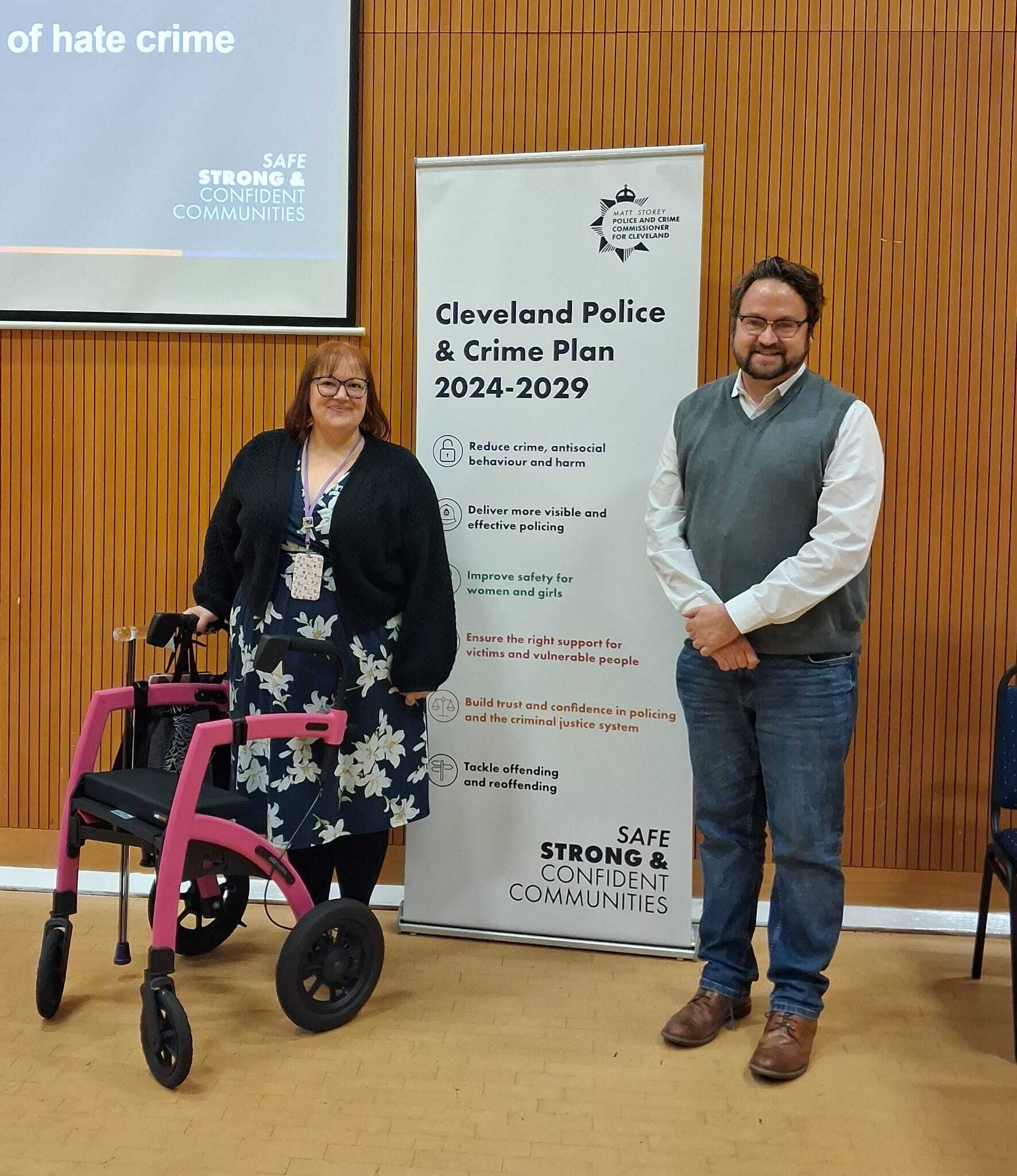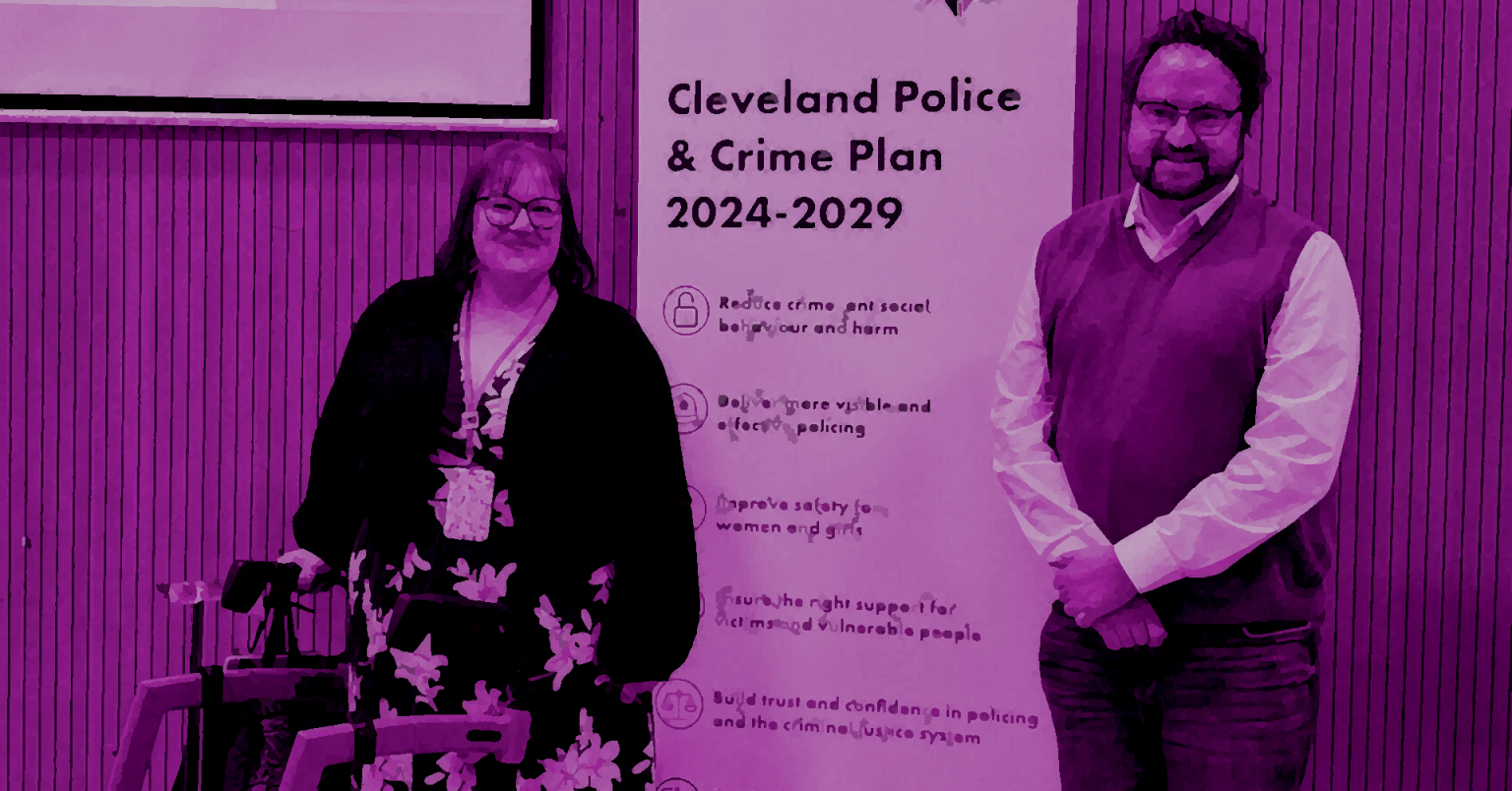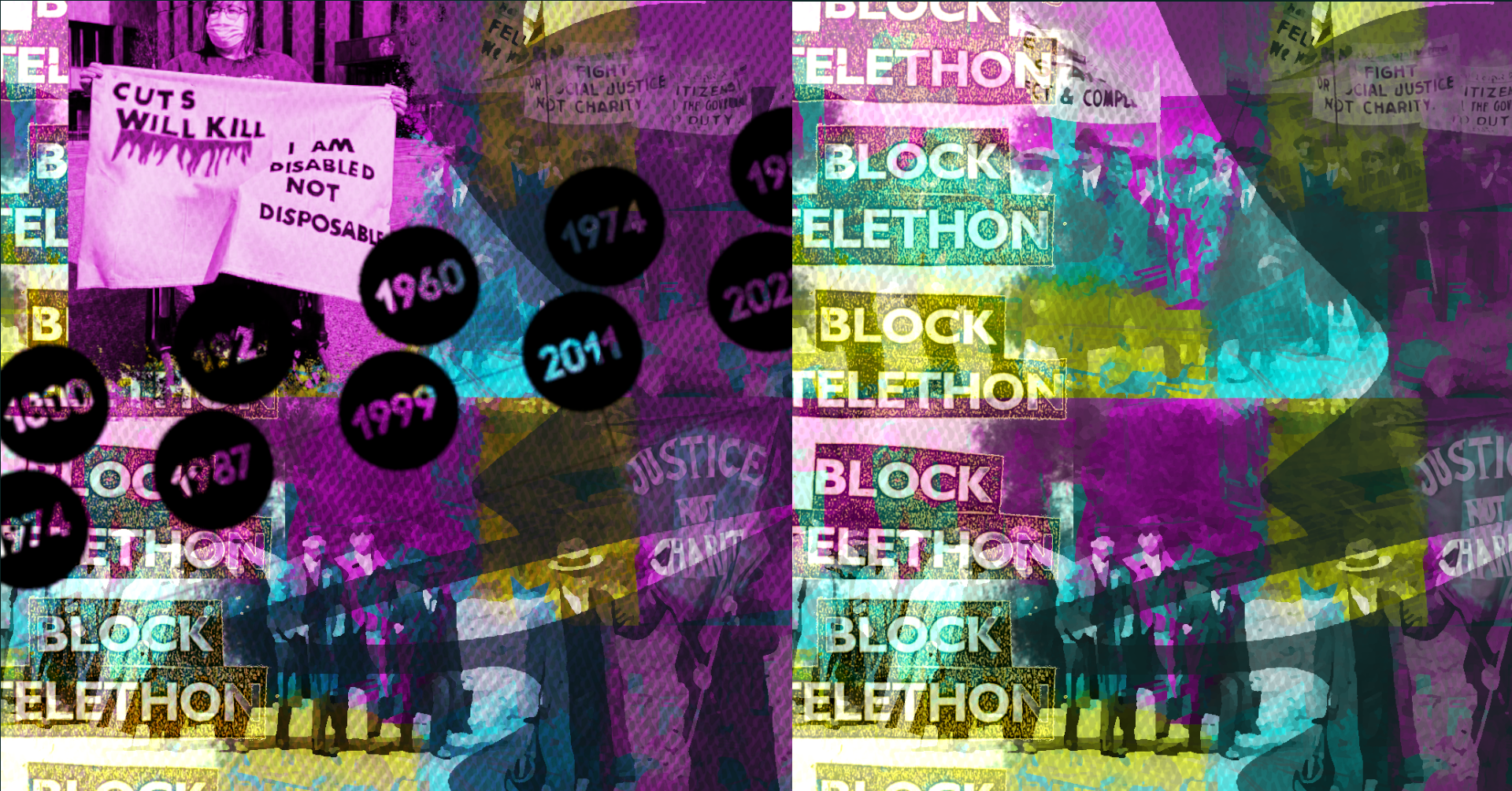Cleveland Disability Hate Crime: Shaping Cleveland’s Disability Hate Crime Strategy
Centering Disabled voices in building safer communitiesAt the Strategic Hate Crime Workshop: Cleveland Disability Hate Crime
On Monday 15th September, Difference North East attended the Cleveland Strategic Hate Crime workshop alongside Cleveland Police and Crime Commissioner Matt Storey to talk about Disability Hate Crime in Cleveland.
Claire with Cleveland PCC Matt Storey at the Strategic Hate Crime Workshop, 15th September 2025.
“At the event I highlighted the current low reporting rates for disability hate crime nationally and advocated for different ways in which we can improve awareness of hate crime and local reporting via education and training. Deaf and Disabled voices must be centred in local hate crime strategies by embedding coproduction early. The ‘Top Tips for police forces’, from the co-produced disability hate crime toolkit, has been shared with local hate crime leads.” – Claire, Difference North East
Ahead of the event, a full Disability Hate Crime briefing was shared with Cleveland Police. This includes recommendations for awareness, reporting, training, and representation.
Why Disability Hate Crime Must Be Taken Seriously
14,285 Disability hate crimes recorded in 2022/23 (England & Wales)
Disabled children are twice as likely to experience crime compared to non-disabled children. Disabled adults also face higher victimisation rates.
Online abuse is rising: 29% of Disabled people have experienced bullying or trolling, and over half report seeing negative comments about disability on social media.
Barriers to Reporting
- Unclear understanding of what counts as hate crime.
- Inaccessible reporting systems (digital and in-person).
- Normalisation of disability hate crime as “trolling.”
- Systemic disablism in policing responses.
Cleveland Disability Hate Crime: Recommendations Shared with Cleveland Police
- Equal protection in law for disability hate crime, alongside race and religion.
- Accessible campaigns in BSL, easy read, captioned video, and audio described formats.
- Co-production with local Disabled people at all stages.
- Advisory boards led by Disabled people to guide policing approaches.
- Regular disability equality and hate crime training, led by DDPOs and lived experience experts.



